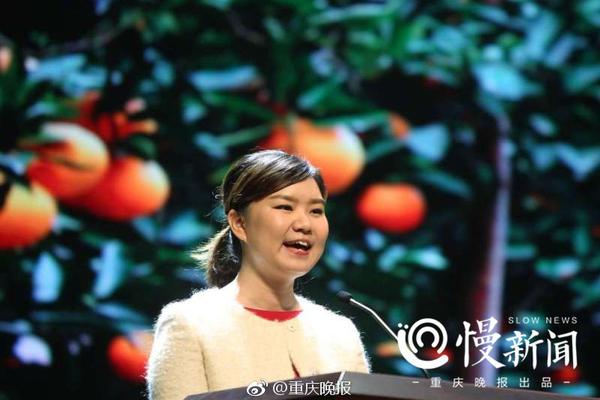
1. The five functions of the operating system are processor management, memory management, device management, file management and job management. Processor management The most basic function of processor management is to process interrupt events. After configuring the operating system, various events can be processed.
2. The main function of the computer operating system is process management, and its work is mainly process scheduling. In the case of a single user and a single taskNext, the processor is only monopolized by one user's task, and the process management work is very simple.
3. Operating System (abbreviation: OS) is a group of interrelated system software programs that supervise and control computer operation, use and run hardware, software resources and provide public services to organize user interaction.
4. Five major management functions of the operating system: (1) Job management: including tasks, interface management, human-computer interaction, graphical interface, voice control and virtual reality, etc. ( 2) File management: also known as information management. ( 3) Storage management: The essence is the management of storage "space", which mainly refers to the management of the main memory.
Any information system has five basic functions, namely: information collection and recording (input); information storage; information processing; information transmission; information output .
According to the functional introduction of the information system, the information system has five basic functions: input, storage, processing, output and control. Different functions have different functions, such as input function: the input function of the information system is determined by the purpose to be achieved by the system, the ability of the system and the permission of the information environment.
Five basic functions of the information system: input, storage, processing, output and control. Input function: The input function of the information system is determined by the purpose to be achieved by the system, the ability of the system and the permission of the information environment.Storage function: Storage function refers to the ability of the system to store various information and data. Mainly including: statistical functions.
The operating system has five functions: processor management: mainly controls and manages the work of the CPU. Storage management: mainly allocate and manage memory. Device management: mainly manage basic input and output devices. File management: responsible for the organization, storage, operation and protection of computer files.
The functions of the computer operating system include: processor management, memory management, device management, file management, job management and other functional modules. Processor management. The most basic function of processor management is to handle interrupt events. The processor can only detect interrupt events and generate interrupts and cannot process them.
The main function of the computer operating system is process management, and its main work is process scheduling. In the case of a single user and a single task, the processor is only monopolized by one user's task, and the work of process management is very simple.
The main functions of the operating system are process and processor management, job management, storage management, device management and file management, as follows: process and processor management. Because the execution of the program must rely on the processor, only one program flow can be processed and executed at any time. Homework management.
I) Processor management The most basic function of processor management is to handle interrupt events. The processor can only detect interrupt events and generate interrupts, and cannot handle these interrupt events. After configuring the operating system, all types of events can be handled.Another function of processor management is processor scheduling.
Five management functions of the operating system: job management: including tasks, interface management, human-computer interaction, graphical interface, voice control and virtual reality, etc. File management: also known as information management. Storage management: The essence is the management of storage "space", which mainly refers to the management of the main memory.

The storage management function of the operating system is to manage memory resources. It mainly realizes memory allocation and recovery, storage protection and memory expansion. The device management of the device management operating system is responsible for allocating and recycling external devices, and controlling external devices to operate according to the requirements of user programs.
The functions of the computer operating system include: processor management, memory management, device management, file management, job management and other functional modules. Processor management. The most basic function of processor management is to handle interrupt events. The processor can only detect interrupt events and generate interrupts and cannot process them.
The five functions of the operating system are processor management, memory management, device management, file management and job management.Processor management The most basic function of processor management is to process interrupt events. After configuring the operating system, various events can be processed.
Casino Plus free 100-APP, download it now, new users will receive a novice gift pack.
1. The five functions of the operating system are processor management, memory management, device management, file management and job management. Processor management The most basic function of processor management is to process interrupt events. After configuring the operating system, various events can be processed.
2. The main function of the computer operating system is process management, and its work is mainly process scheduling. In the case of a single user and a single taskNext, the processor is only monopolized by one user's task, and the process management work is very simple.
3. Operating System (abbreviation: OS) is a group of interrelated system software programs that supervise and control computer operation, use and run hardware, software resources and provide public services to organize user interaction.
4. Five major management functions of the operating system: (1) Job management: including tasks, interface management, human-computer interaction, graphical interface, voice control and virtual reality, etc. ( 2) File management: also known as information management. ( 3) Storage management: The essence is the management of storage "space", which mainly refers to the management of the main memory.
Any information system has five basic functions, namely: information collection and recording (input); information storage; information processing; information transmission; information output .
According to the functional introduction of the information system, the information system has five basic functions: input, storage, processing, output and control. Different functions have different functions, such as input function: the input function of the information system is determined by the purpose to be achieved by the system, the ability of the system and the permission of the information environment.
Five basic functions of the information system: input, storage, processing, output and control. Input function: The input function of the information system is determined by the purpose to be achieved by the system, the ability of the system and the permission of the information environment.Storage function: Storage function refers to the ability of the system to store various information and data. Mainly including: statistical functions.
The operating system has five functions: processor management: mainly controls and manages the work of the CPU. Storage management: mainly allocate and manage memory. Device management: mainly manage basic input and output devices. File management: responsible for the organization, storage, operation and protection of computer files.
The functions of the computer operating system include: processor management, memory management, device management, file management, job management and other functional modules. Processor management. The most basic function of processor management is to handle interrupt events. The processor can only detect interrupt events and generate interrupts and cannot process them.
The main function of the computer operating system is process management, and its main work is process scheduling. In the case of a single user and a single task, the processor is only monopolized by one user's task, and the work of process management is very simple.
The main functions of the operating system are process and processor management, job management, storage management, device management and file management, as follows: process and processor management. Because the execution of the program must rely on the processor, only one program flow can be processed and executed at any time. Homework management.
I) Processor management The most basic function of processor management is to handle interrupt events. The processor can only detect interrupt events and generate interrupts, and cannot handle these interrupt events. After configuring the operating system, all types of events can be handled.Another function of processor management is processor scheduling.
Five management functions of the operating system: job management: including tasks, interface management, human-computer interaction, graphical interface, voice control and virtual reality, etc. File management: also known as information management. Storage management: The essence is the management of storage "space", which mainly refers to the management of the main memory.

The storage management function of the operating system is to manage memory resources. It mainly realizes memory allocation and recovery, storage protection and memory expansion. The device management of the device management operating system is responsible for allocating and recycling external devices, and controlling external devices to operate according to the requirements of user programs.
The functions of the computer operating system include: processor management, memory management, device management, file management, job management and other functional modules. Processor management. The most basic function of processor management is to handle interrupt events. The processor can only detect interrupt events and generate interrupts and cannot process them.
The five functions of the operating system are processor management, memory management, device management, file management and job management.Processor management The most basic function of processor management is to process interrupt events. After configuring the operating system, various events can be processed.
Hearthstone Arena class tier list 2024
author: 2025-01-10 08:34UEFA Champions League live streaming free
author: 2025-01-10 10:07 Casino Plus login register
Casino Plus login register
239.22MB
Check App to watch Champions League live free
App to watch Champions League live free
257.53MB
Check UEFA Champions League
UEFA Champions League
744.67MB
Check Hearthstone Arena win rate
Hearthstone Arena win rate
181.99MB
Check Hearthstone arena class win rates reddit
Hearthstone arena class win rates reddit
872.16MB
Check Hearthstone Arena Tier List
Hearthstone Arena Tier List
267.69MB
Check Casino redeem
Casino redeem
954.24MB
Check Bingo Plus
Bingo Plus
695.89MB
Check UEFA Champions League live streaming free
UEFA Champions League live streaming free
178.28MB
Check bingo plus update today
bingo plus update today
219.92MB
Check UEFA Champions League live streaming free
UEFA Champions League live streaming free
156.58MB
Check bingo plus update today Philippines
bingo plus update today Philippines
568.13MB
Check UEFA Europa League
UEFA Europa League
638.52MB
Check Casino Plus app
Casino Plus app
152.95MB
Check 100 free bonus casino no deposit GCash
100 free bonus casino no deposit GCash
448.34MB
Check UEFA European championship
UEFA European championship
281.73MB
Check Casino redeem
Casino redeem
182.18MB
Check LR stock price Philippines
LR stock price Philippines
787.64MB
Check 100 free bonus casino no deposit GCash
100 free bonus casino no deposit GCash
298.53MB
Check Hearthstone arena
Hearthstone arena
889.55MB
Check Walletinvestor digi plus
Walletinvestor digi plus
419.45MB
Check Casino Plus free 100
Casino Plus free 100
856.81MB
Check Walletinvestor digi plus
Walletinvestor digi plus
319.36MB
Check Casino Plus login register
Casino Plus login register
576.79MB
Check App to watch Champions League live free
App to watch Champions League live free
645.35MB
Check DigiPlus
DigiPlus
786.73MB
Check casino plus free 100
casino plus free 100
814.36MB
Check Bingo Plus stock
Bingo Plus stock
594.53MB
Check DigiPlus stock
DigiPlus stock
581.79MB
Check Hearthstone deck
Hearthstone deck
511.86MB
Check Casino redeem
Casino redeem
416.68MB
Check Europa League app
Europa League app
192.47MB
Check UEFA Champions League standings
UEFA Champions League standings
168.26MB
Check bingo plus update today
bingo plus update today
718.81MB
Check App to watch Champions League live free
App to watch Champions League live free
759.32MB
Check Champions League
Champions League
456.15MB
Check
Scan to install
Casino Plus free 100 to discover more
Netizen comments More
1143 UEFA Champions League live streaming free
2025-01-10 11:11 recommend
669 Casino Plus
2025-01-10 10:11 recommend
2028 Hearthstone Arena class tier list 2024
2025-01-10 09:34 recommend
2889 Casino free 100 no deposit
2025-01-10 09:22 recommend
2944 DigiPlus stock
2025-01-10 08:49 recommend